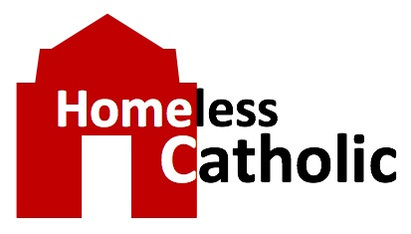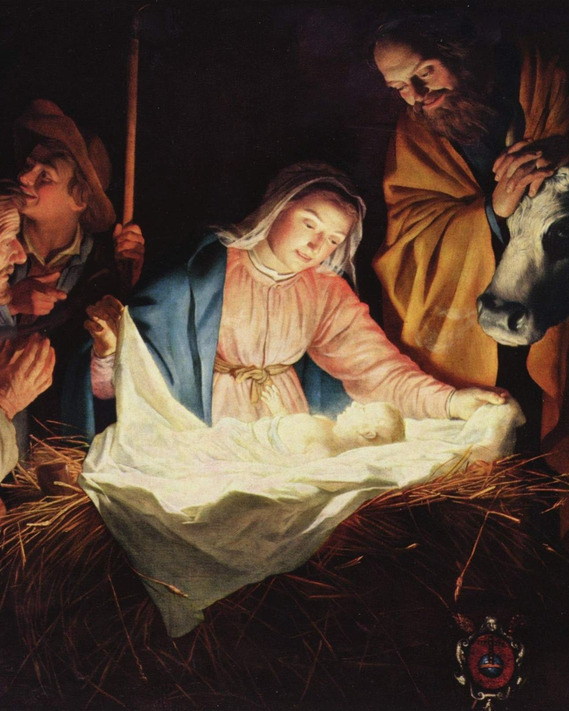Talking to Mary
We all look back fondly on our many ordinary and notable conversations with our moms. But what do we know about conversations between Jesus and Mary his mother?
Talking to Mary
http://www.usccb.org/bible/readings/061019.cfm
Genesis 3:9-15, 20
John 19:25-34
We know of three times when Jesus spoke to his mother, Mary.
The first time was when Jesus was 12 years old, when his parents went to Jerusalem for the feast of Passover. The event was recorded in Luke 2:41-49.
Each year his parents went to Jerusalem for the feast of Passover, and when he was twelve years old, they went up according to festival custom. After they had completed its days, as they were returning, the boy Jesus remained behind in Jerusalem, but his parents did not know it.
Thinking that he was in the caravan, they journeyed for a day and looked for him among their relatives and acquaintances, but not finding him, they returned to Jerusalem to look for him.
After three days they found him in the temple, sitting in the midst of the teachers, listening to them and asking them questions, and all who heard him were astounded at his understanding and his answers.
When his parents saw him, they were astonished, and his mother said to him, “Son, why have you done this to us? Your father and I have been looking for you with great anxiety.”
And he said to them, “Why were you looking for me? Did you not know that I must be in my Father’s house?” (Luke 2:41-49)
One can only imagine the panic of Mary and Joseph when the realized that Jesus was not among the group returning from the annual trip to Jerusalem. At 12 years of age, Jesus would have just become of age. So it would have been more like having a missing high school student in our current times. What could possibly go wrong? Without cell phones or texting, where would you as parents begin your search? You would hope he had traveled home with relatives or other folks you knew. That would not be uncommon. But when Jesus could not be found, the task becomes more daunting. Retrace the journey back to Jerusalem and look for him in the largest city in the region.
It would be a mixture of relief and “how could you do this to us” when your son was finally found safe. But not just safe – Jesus would be found in the temple with the teachers. The teachers weren’t merely impressed, they were “astounded” at his knowledge and understanding.
Jesus seemed surprised that his mother didn’t know he would be in the temple, or “my Father’s house” as Jesus put it. Did Mary remember the words of the angel Gabriel who said “Do not be afraid, Mary; you have found favor with God. You will conceive and give birth to a son, and you are to call him Jesus. He will be great and will be called the Son of the Most High.”
We are told that, while Joseph and Mary did not fully understand Jesus’ response, Mary “. . . kept all these things in her heart.”
The next recorded discourse between Jesus and his mom occurs when Jesus is beginning his public ministry. Jesus is about 30 at time.
On the third day there was a wedding in Cana in Galilee, and the mother of Jesus was there.
Jesus and his disciples were also invited to the wedding.
When the wine ran short, the mother of Jesus said to him, “They have no wine.”
Jesus said to her, “Woman, how does your concern affect me? My hour has not yet come.”
His mother said to the servers, “Do whatever he tells you.” (John 2:1-5)
Is this disrespect for his mother? Not at all! We see that Mary believes that her son can solve just about any problem. Jesus’ response seems a bit harsh at first, but it hints at bigger things to come.
Mary then speaks to the servers, and the message applies to all of us. “Do whatever he tells you.” The servers then follow the instructions given by Jesus, and 120 gallons or so of fine wine are produced from the jars of water there. This is usually considered the first of Jesus’ signs.
The whole episode is one of Mary’s continued faith in her son, and Jesus’ focus on his mission. His hour has not come yet.
The public ministry of Jesus spreads for another three years. He performs many miracles and signs, but also finds himself at odds with the Jewish hierarchy.
The next time Jesus is recorded to have spoken to his mom is the last time. This happens on a Friday. We call it Good Friday.
It was a very busy morning, going something like this:
- 6 a.m. Jesus Stands Trial Before Pilate (Matthew 27:11-14; Mark 15:2-5; Luke 23:1-5; John 18:28-37)
- Jesus Sent to Herod (Luke 23:6-12)
- 7 a.m. Jesus Returned to Pilate (Luke 23:11)
- Jesus is Sentenced to Death (Matthew 27:26; Mark 15:15; Luke 23:23-24; John 19:16)
- 8 a.m. Jesus is Led Away to Calvary (Matthew 27:32-34; Mark 15:21-24; Luke 23:26-31; John 19:16-17)
- 9 a.m. Jesus is Crucified on the Cross
Jesus said, “Father, forgive them, for they do not know what they are doing.” (Luke 23:34)
The Soldiers Cast Lots for Jesus’ Clothing (Mark 15:24) - 10 a.m. Jesus is Insulted and Mocked
- 11 a.m. One of the two criminals crucified alongside Jesus says
- “Jesus, remember me when you come into your kingdom.”
- Jesus answered him, “I tell you the truth, today you will be with me in paradise.”
- It’s still before noon, when we get to today’s Gospel reading:
Standing by the cross of Jesus were his mother and his mother’s sister, Mary the wife of Clopas, and Mary of Magdala. When Jesus saw his mother and the disciple there whom he loved, he said to his mother, “Woman, behold, your son.” Then he said to the disciple, “Behold, your mother.” And from that hour the disciple took her into his home. (John 19:25-27)
Even though Jesus had been whipped, crowned with thorns, and nailed to a cross (and all of the other unpleasantries listed above), a small number of his most faithful disciples are at the foot of the cross. The majority of his supporters have scattered so that they would not be swept up in the frenzy of the crucifixion.
Jesus has some final work to do – he sets up John, the disciple whom he loved, with his mother (the first Mary, though not actually named) as son and mother, a relationship that will provide protection and survival to Mary, the mother of Christ, and no doubt help form the Gospel of John. This final act of love before his death and upcoming resurrection follows the forgiveness of his crucifiers and the redemption of the repentant criminal and shows the love of God through Jesus the Son.
At noon, darkness falls about the land.
Within the next 3 hours, Jesus says, “I thirst,” showing his continued humanity.
Jesus acknowledges that he is done with his work on earth with “It is finished” and accepts death by proclaiming “Into your hands I commend my spirit.”

